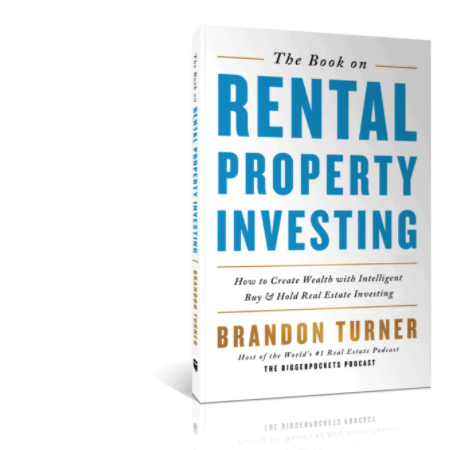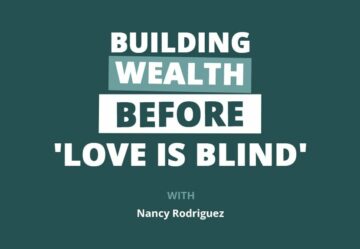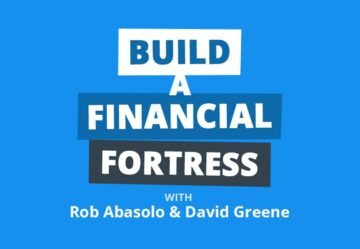The U.S. Department of Housing and Urban Development (HUD) is a federal government agency that helps people get access to affordable housing. Most Americans associate HUD with public housing assistance and assisting low-income families. However, HUD programs also help individuals qualify for FHA loans, make home improvements, and enforce fair housing laws nationwide.
Many property investors are considering buying HUD homes to expand their portfolios. HUD foreclosed homes are often sold below market value, allowing you to rehab and flip the property for profit.
However, HUD housing programs are also a great way for families to buy their first home. Schemes like the “Good Neighbor Next Door Program” or the “HUD $100 Dollar Program” provide highly affordable financing options for low-income families to buy a home.
This article explores what it takes to purchase a HUD home and whether this type of housing can be profitable. You will also learn the pros and cons of buying a foreclosed HUD property.
What is a HUD Home
A HUD home is a foreclosed property seized from homeowners who defaulted on their Federal Housing Administration (FHA) loan. HUD homes can be any property type—a traditional home, a duplex, or even a trailer home. The FHA pays the remainder of the mortgage, and HUD puts the property on the housing market.
HUD homes that come on the property market are sold “as-is.” Therefore, you cannot expect any property upgrades, renovations, or repairs. Additionally, because the previous property owners suffered financial hardships, the property could be in a state of disrepair. However, these homes are typically the cheapest for sale in the area.
HUD Programs
HUD programs started in 1965 when President Lyndon B. Johnson formed the agency. Its mission is to “create strong, sustainable, inclusive communities and quality affordable homes for all.” To meet this goal, HUD runs various programs to ensure affordable rental housing and help families enjoy financial security and improved quality of life.
Here are some of the various HUD housing programs designed to provide financial assistance to anyone wanting to buy or rent a home.
Housing choice voucher program
Commonly called Section 8 housing, this program provides rental assistance for low-income families, people with disabilities, or older people. Landlords renting to Section 8 tenants must ensure the property meets or exceeds minimum health and safety standards. In addition, tenants receive vouchers to help pay their mortgages.
To qualify for Section 8 housing, the family must meet specific criteria. These include median income based on family size, good rental history, lack of criminal record, and choosing from an approved list of HUD apartments or homes.
Then, the local public housing authority approves Section 8 applicants.
Federal housing assistance loans
The FHA offers mortgage and loan insurance to people who otherwise may not qualify under standard mortgage rules. Rather than offer loans directly, the FHA protects approved lenders from financial risk if the homeowner defaults on mortgage payments. However, the FHA can foreclose on these properties, which then become “HUD homes.”
Here are some of the criteria to qualify for an FHA loan:
- Have a debt-to-income ratio of less than 43%
- Have a credit score of at least 580 for a 3.5% down payment
- Have a credit score between 500 and 579 for a 10% down payment
- Pay the Mortgage Insurance Premium (MIP)
- Have proof of employment and steady income
- Live in the home as the primary residence
Community development block grants (CDBG)
HUD programs also help ensure safe housing and fair housing opportunities. For example, the CDBG program provides financial assistance to communities to rehab and improve residential and non-residential buildings. In addition, the grants help to improve utilities and boost access to employment and public services.
HOME investment partnerships program
The HOME program provides Federal funds to improve housing for tenants and homeowners. This program is specifically for families with combined incomes below the median family income level for the area.
For example, a low-income homeowner can get funds to repair or rehab their home to weatherize it or make emergency repairs. Or families can apply for tenant-based rental assistance to help afford housing costs or pay the security deposit on a rental property.
Fair Housing Act
The Fair Housing Act is a HUD program ensuring that housing providers cannot deny housing to anyone based on discrimination. Therefore, landlords cannot harass, refuse to sell or rent, or make housing unavailable because of the following factors:
- Age
- Gender identity
- Sexual orientation
- Religion
- National origin
- Marital status
- Race
- Color
- Disability
The Fair Housing Act applies equally to homeowners selling a home or landlords renting a unit.
How to Buy a HUD Home
Buying a HUD home can be a great way to get a good deal on a property. These foreclosed homes are often sold at discounted prices, making them attractive to potential investors and homeowners.
However, the question is: how can you buy a HUD home?
As with any property purchase, the buying process starts with due diligence. Therefore, it’s crucial to research your target market, analyze sales comps, and calculate after-repair values (ARV). Additionally, it would be best to learn about fees associated with buying a HUD home.
The next step is to ensure you have financing in place. So, unless you can make a cash offer on the home, you will need to get pre-approved for a mortgage. This step lets you know how much you can afford to bid on a HUD property.
Here are the necessary steps when you start looking for a home to purchase under the HUD housing program:
- Look for HUD homes for sale: The HUD website lists various federal agencies with properties to sell. There, you can search for homes by state or ZIP code. Remember, before submitting an offer to buy an investment property, you must wait until the initial listing period ends.
- Find a HUD-approved real estate agent: HUD only accepts bids for properties from licensed agents or brokers. Therefore, finding an agent with experience in the HUD purchasing process is essential.
- Compile information on the bid: The next step is gathering all the bid information. This includes the deadline, who is eligible to bid, and if it’s designated an “owner-occupied property.”
- Schedule a property inspection: If possible, arrange for a home inspector to check the property’s condition. HUD homes are sold “as-is” and could require extensive repairs. If a pre-bidding inspection is impossible, ensure your bid includes a home inspection contingency.
- Submit your bid: Work with your real estate agent or broker to make a bid on the property you want. If yours is the winning bid, you typically have 30 to 60 days to finalize the deal.
Who qualifies for a HUD home?
Anyone can qualify to purchase a HUD home. However, owner-occupant buyers get priority in the bidding process. Therefore, the first 30 days of the bidding process are reserved for owner-occupants—meaning the home must be your primary residence for 12 months. Additionally, you cannot have purchased a HUD home in the previous 24 months.
After the initial 30-day bidding process has passed, the sale conditions are no longer exclusively for owner-occupancy. After that, bidding is open to everyone, including fix-and-flip investors or investors who buy rental properties.
How to find HUD homes
The only way to find properties sold under the HUD housing scheme is at the HUDHomestore.gov website. The site allows you to filter results to find HUD foreclosures based on state, ZIP code, property size, price, and buyer type. These foreclosure properties are not found on MLS or other real estate websites.
How to finance a HUD home
It is possible to purchase a HUD home through traditional financing, either a traditional mortgage, FHA loan, VA loan, FHA203(k) loan, or cash. However, there are several additional financing options for HUD housing. Here are the most common:
- Good Neighbor Next Door Program: This program helps qualified public servants — teachers, police officers, firefighters, and medical technicians — purchase a home at a 50 percent discount. However, there are certain criteria to meet. For example, applicants must live in the property for a minimum of three years.
- One Dollar Program: This incentive helps low-income families purchase a home for $1. Eligible homes must have been on the market for at least six months.
- $100 Down Program: Owner-occupant buyers on a low income can purchase a home with a $100 down payment.
- Housing Choice Voucher Program: Low-income families can apply for Section 8 housing to receive financial aid to help make mortgage payments more affordable.
The Pros and Cons of Buying a HUD Home
Suppose you are considering buying a HUD home. What are the major factors to help decide if it makes financial sense? Here are the advantages and disadvantages of purchasing a HUD property.
Pros
1. Buying a HUD home is cheaper
The most significant benefit of HUD homes is their price. Typically, these properties sell below their market value. This can make them a more attractive option for investors or families looking for affordable housing.
2. Lower down payment
Buying a HUD home with an FHA loan means your down payment can be as little as 3.5% of the purchase price. Therefore, a typical deposit will range from $500 to $2,000 rather than the standard 20%. Additionally, you may qualify for the $100 Down Payment Program.
3. Assistance with closing costs
In many cases, HUD home buyers qualify for closing cost assistance. This can help pay transfer taxes, recording fees, and other associated costs.
4. Less competition in the HUD housing market
Another advantage of purchasing a HUD home is that there is less competition. The successful bidder is the one that generates the greatest net profits for the Department of Housing and Urban Development. It is not based on contingencies, financing, or the down payment size.
Cons
1. HUD homes sold “sight unseen”
You can never buy a turnkey property when bidding on a HUD house. Properties are sold “as is,” and there is no negotiation on these properties. Even with a property inspection, many unseen repair and rehab issues can exist.
2. Occupancy rules and selling restrictions
If you buy a HUD home as an “owner-occupant,” you are under two restrictions. First, you must live in the property for a minimum of one year. Second, you cannot buy another HUD house for two years. Maybe it’s not a big problem, but it’s something to consider.
3. Risk of buying a money pit
A common issue with HUD foreclosures is that rehab bills can be huge. Because the previous homeowner couldn’t pay the mortgage, the chances are that the house is in a poor state of repair. Additionally, the foreclosure process can take a long time, meaning it may have been empty for several months or years.
4. Use a HUD-approved real estate agent
Buying a home listed on the HUDHomestore website restricts the type of agent you can use. The real estate agent or broker must be HUD-approved to submit a bid.
5. Limited HUD housing stock
Compared to MLS, there are relatively few foreclosures for sale. For example, many states have fewer than ten properties for sale. The lack of available properties can make it challenging to find a suitable home.
HUD Home FAQs
What are HUD’s main functions and purpose?
The Department of Housing and Urban Development aims to create strong, sustainable, inclusive communities and quality affordable homes for all. Through various programs, HUD seeks to boost homeownership, support community development, and increase access to affordable housing free from discrimination.
HUD works with state and local governments, public housing agencies, and nonprofit organizations to achieve this goal.
Who qualifies for a HUD home?
The two qualifying factors when buying a HUD home are divided into owner-occupant and investor. The first 30 days of bidding are only open to buyers who commit to staying in the property for 12 months. This includes buyers purchasing a home through a HUD program.
The second phase of the HUD bidding process starts if no successful bids have been received in the initial phase. Anyone can qualify to bid on a HUD home that has been listed for over a month.
What does the HUD secretary do?
The Secretary of the Department of Housing and Urban Development (HUD) advises the President on housing-related matters. In addition, the Secretary initiates policies and rules and oversees programs to advance the agency’s mission of making affordable housing—rental and homeownership—accessible for everyone, especially low-income families.

Find financial freedom through rentals
If you’re considering using rental properties to build wealth, this book is a must-read. With nearly 400 pages of in-depth advice for building wealth through rental properties, The Book on Rental Property Investing imparts the practical and exciting strategies that investors use to build cash flow and wealth.
Note By BiggerPockets: These are opinions written by the author and do not necessarily represent the opinions of BiggerPockets.
- SEO Powered Content & PR Distribution. Get Amplified Today.
- Platoblockchain. Web3 Metaverse Intelligence. Knowledge Amplified. Access Here.
- Source: https://www.biggerpockets.com/blog/what-is-hud
- 000
- 12 months
- a
- About
- Accepts
- access
- Achieve
- Act
- addition
- Additional
- Additionally
- administration
- advance
- ADvantage
- advantages
- advice
- afford
- affordable
- affordable housing
- After
- agencies
- agency
- Agent
- agents
- Aid
- aims
- All
- Allowing
- allows
- Americans
- analyze
- and
- Another
- anyone
- apartments
- Apply
- approved
- AREA
- article
- Assistance
- Associate
- associated
- attractive
- author
- authority
- available
- based
- because
- become
- before
- below
- benefit
- BEST
- between
- bid
- Big
- Bills
- Block
- book
- boost
- border
- broker
- brokers
- build
- Building
- buy
- buyers
- Buying
- calculate
- called
- Can Get
- cannot
- cases
- Cash
- cash flow
- certain
- challenging
- chances
- cheapest
- check
- choice
- choosing
- closing
- code
- combined
- come
- commit
- Common
- Communities
- community
- competition
- condition
- conditions
- Cons
- Consider
- considering
- Cost
- Costs
- could
- create
- credit
- Criminal
- criteria
- crucial
- Days
- deal
- defaults
- Department
- deposit
- designated
- designed
- Development
- diligence
- directly
- disabilities
- Discount
- Discrimination
- divided
- Dollar
- Door
- down
- either
- eligible
- emergency
- employment
- ends
- enjoy
- ensure
- ensuring
- equally
- especially
- essential
- estate
- Even
- everyone
- example
- exceeds
- exciting
- exclusively
- Expand
- expect
- experience
- extensive
- factors
- fair
- families
- family
- Federal
- Federal government
- Fees
- few
- filter
- finalize
- finance
- financial
- Financial Aid
- financing
- Find
- finding
- firefighters
- First
- Flip
- flow
- following
- For Investors
- formed
- found
- Free
- Freedom
- from
- functions
- funds
- gathering
- generates
- get
- goal
- good
- Government
- Governments
- grants
- great
- greatest
- hardships
- Health
- help
- helps
- here
- Hidden
- highly
- history
- Home
- Homes
- House
- housing
- housing market
- How
- However
- HTTPS
- huge
- impossible
- improve
- improved
- improvements
- in
- in-depth
- Incentive
- include
- includes
- Including
- Inclusive
- Income
- Increase
- individuals
- information
- initial
- Initiates
- insurance
- investing
- investment
- investor
- Investors
- issue
- issues
- IT
- Johnson
- Justice
- Know
- Lack
- Laws
- LEARN
- lenders
- Lets
- Level
- LG
- Licensed
- Life
- List
- Listed
- listing
- Lists
- little
- live
- loan
- Loans
- local
- Long
- long time
- longer
- looking
- Low
- Main
- major
- make
- MAKES
- Making
- many
- Market
- Matters
- max-width
- meaning
- means
- medical
- Meet
- Meets
- minimum
- Mission
- MLS
- money
- Month
- months
- more
- Mortgage
- Mortgages
- most
- Nationwide
- nearly
- necessarily
- necessary
- Need
- net
- next
- Nonprofit
- Nonprofit Organizations
- offer
- Offers
- officers
- ONE
- open
- Opinions
- opportunities
- Option
- Options
- organizations
- Other
- otherwise
- owners
- partnerships
- passed
- Pay
- payment
- payments
- pays
- People
- percent
- period
- phase
- Place
- plato
- Plato Data Intelligence
- PlatoData
- Police
- policies
- poor
- portfolios
- possible
- potential
- Practical
- Premium
- president
- previous
- price
- Prices
- primary
- priority
- Problem
- process
- Profit
- profitable
- profits
- Program
- Programs
- proof
- properties
- property
- PROS
- provide
- providers
- provides
- public
- purchase
- purchased
- purchasing
- purpose
- Puts
- qualified
- qualify
- qualifying
- quality
- question
- range
- rather
- ratio
- real
- real estate
- receive
- received
- record
- recording
- rehab
- relatively
- remember
- Rent
- Rental
- repair
- represent
- require
- research
- reserved
- residential
- restrictions
- Results
- Risk
- round
- rules
- safe
- Safety
- sale
- sales
- scheme
- schemes
- Search
- Second
- secretary
- Section
- security
- Seeks
- seized
- sell
- Selling
- sense
- Services
- several
- significant
- site
- SIX
- Six months
- Size
- So
- sold
- some
- something
- specific
- specifically
- standard
- standards
- start
- started
- starts
- State
- States
- steady
- Step
- Steps
- strategies
- strong
- submit
- successful
- suitable
- support
- sustainable
- Take
- takes
- Target
- Taxes
- teachers
- ten
- The
- The Area
- their
- therefore
- three
- Through
- time
- to
- traditional
- trailer
- transfer
- typical
- typically
- under
- unit
- upgrades
- urban
- use
- utilities
- value
- Values
- various
- wait
- wanting
- Wealth
- webp
- Website
- websites
- What
- whether
- which
- WHO
- will
- winning
- Work
- works
- would
- written
- year
- years
- Your
- zephyrnet
- Zip











